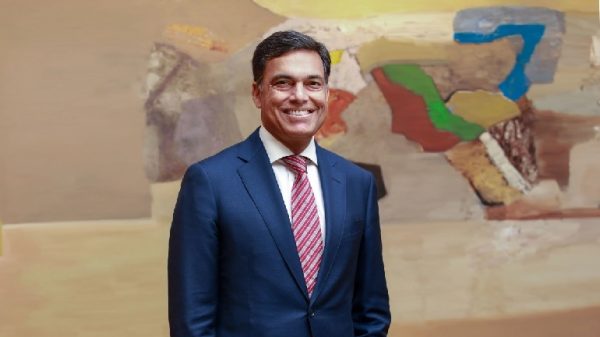Usha Chilukuri Vance’s role in the political spotlight is layered with cultural and religious complexities, reflecting the challenges of representing multiple identities within a predominantly Christian political party. Married to JD Vance, a high-profile figure within the Republican Party, Usha has largely stayed out of the public eye regarding her Hindu faith. Despite her appearance at the Republican National Convention, where she shared anecdotes about their multicultural marriage, she has chosen to remain silent about her personal religious beliefs and practices, a choice that has sparked debate among political analysts and the Indian American community.
Her interfaith marriage to JD Vance, who converted to Catholicism, contrasts with her upbringing in a Hindu household. This dynamic has led to public curiosity about how the couple navigates religious differences, particularly regarding the faith in which their children are raised. However, Usha’s reluctance to address these aspects of her life publicly has been met with both understanding and criticism. Some view her silence as a strategic move to avoid alienating certain Republican voters, while others believe it underscores the ongoing challenges faced by non-Christian political figures within the party.
Usha’s presence at the RNC and her marriage to a white, Christian man cooking Indian food paint a portrait of cultural blending. This image has resonated with certain segments of the Indian American community, particularly conservative Hindus, many of whom support the politics of Indian Prime Minister Narendra Modi. Still, Usha’s Hindu background, while potentially appealing to some South Asian voters, does not appear to be a central part of her or the party’s public-facing narrative. Scholars like Dheepa Sundaram argue that her Hindu identity may be seen as more of a liability than an asset within the party, where Christian conservatism and nationalism hold sway.
Usha’s silence, combined with the defeat of Hindu presidential candidate Vivek Ramaswamy, reflects the difficulties non-Christian figures face in gaining traction within the Republican Party. The political landscape suggests there is still significant resistance to religious diversity in American politics, particularly in the context of the Republican base, making it difficult for leaders like Usha Vance to fully embrace and publicly express their religious identities.
Follow for more.




















